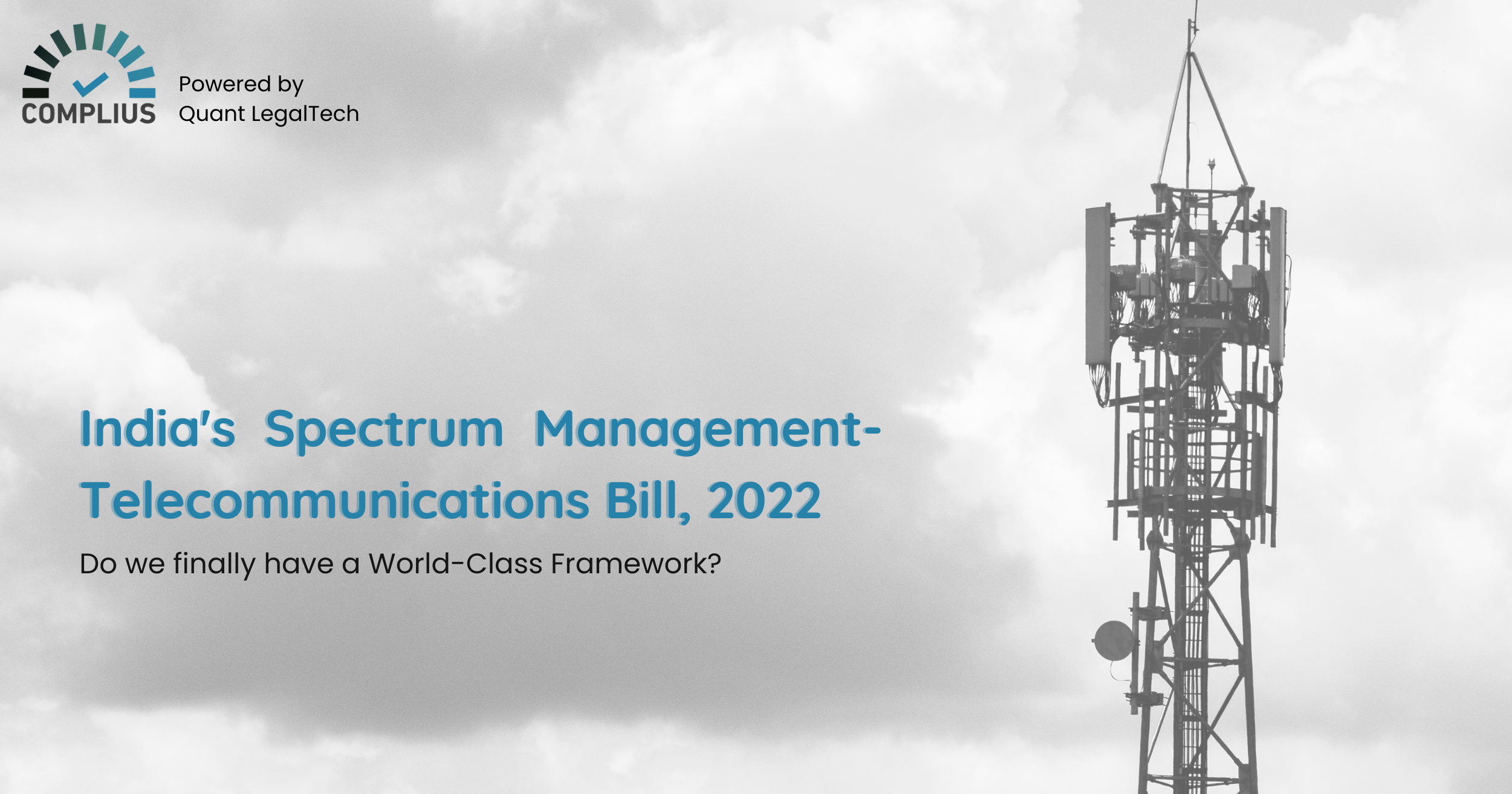Choose another country or region to see content specific to your location
Spectrum Management in India’s latest Telecommunications Bill, – Do we Finally have a World-Class Framework?
January 28, 2023

“Spectrum is a scarce natural resource”. Very few understand the essence of this statement. Unlike any other natural resource, the value of Spectrum does not deteriorate, and it has remained constant since the evolution of our planet. Therefore, its effective utilization is of paramount importance to all of us.
“Spectrum management” is the allotment of radiocommunication frequencies and the technical rules that go with it to ensure that this scarce resource is deployed with optimum social benefit. As a result, a well-crafted spectrum management policy can control how quickly and effectively these technologies are deployed. The frequency range from 1 Hz to 3000 GHz (3 THz), which may be used for wireless communication, is often referred to as the radio spectrum. Spectrum management practices must accommodate the rising demand for services like smartphones.
In India, the need for legal regulation in spectrum management is critical due to the 2G scam in 2012, wherein lawmakers and government personnel were implicated in a telecommunications investigation. In a case heard before the Supreme Court, the ruling body found the spectrum allocation unlawful and arbitrary. As a result, it revoked 122 licenses given by A. Raja, the primary accused and former minister of telecommunications and information technology. Since then, the spectrum auctions have brought in over Rs. 3 trillion, with the latest being Rs. 1.5 trillion in 2022. This previous auction brought in the highest revenue via this stream to the government, raising expectations and valuations for the upcoming years of technology. With this background, policymakers have sought to establish an efficient and secure infrastructure for spectrum allotment. The Draft Telecommunications Bill 2022 (“the Bill”) adheres to this need of the hour.
The Bill specifies a clear legal foundation and regulatory framework for the Central Government’s spectrum allotment activities. The fundamental tenet of the Bill is that spectrum allocation should promote equality and guarantee broad access to telecommunications services. The Bill calls for Spectrum to be assigned principally by auction. The Bill offers a supportive structure for the administrative process of allocating Spectrum for a few specific governmental and public interest tasks, such as transportation, research, and more. The government is entitled to revoke licenses if they are either dormant or the licensee becomes insolvent, thus enabling these resources to be re-auctioned to ensure effective spectrum utilization. The Bill introduces an innovative “voluntary undertaking” approach where the licensee can submit undertakings to remedy breaches, thereby bringing relief to the telecom ecosystem.
An intriguing aspect of the passage of the Bill has been the low-key role of the Telecom Regulatory Authority of India (“TRAI”). Although the Central Government has held the pen during the legislative stages, the Communications Minister has indicated that TRAI will implement a substantial portion of the Bill and that its consultative role in formulating telecom rules will continue.
In conclusion, the Bill provides a solid enabling structure for allocating Spectrum. Given the multiple iterations that have gone into it, emboldened further by the past lessons, we hope it will deliver on its promises and enable an exciting future for the sector.
Written by: Rishab Kaushik